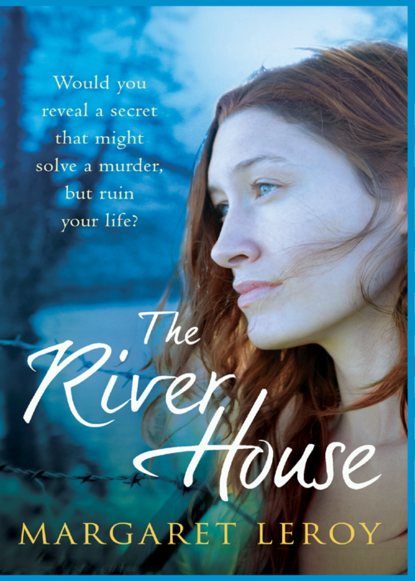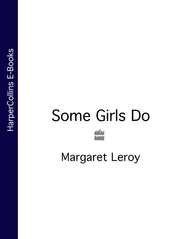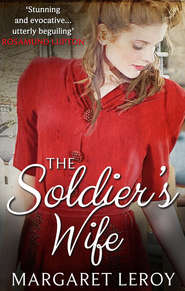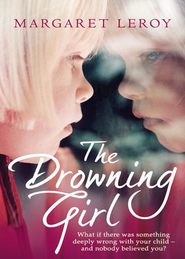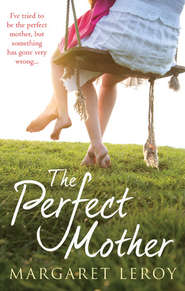По всем вопросам обращайтесь на: info@litportal.ru
(©) 2003-2024.
✖
The River House
Настройки чтения
Размер шрифта
Высота строк
Поля
‘Have you got everything you need? D’you want me to send you anything? I could send you some echinacea.’
‘OK, Mum, if you want to…’
‘Are you making plenty of friends? ‘
‘They’re really nice in my corridor. We’re going out for corridor curry tomorrow.’
‘Any men you like the look of? ’ I say tentatively.
‘Just don’t go there, Mum, OK? Anyway, half the guys in my college are gay—that’s why they have such nice trainers. Look, my phone needs recharging,’ she says. ‘I’ve really got to go.’
I finish the room. I box up the books and dust everywhere. I strip the bed and heap up the linen to take to the kitchen to wash.
It’s raining more heavily now: there’s a thick brown light in my kitchen. I make a coffee and sit at my kitchen table. Suddenly, after talking to Molly, I feel ashamed; the things I’ve been thinking astound me. All the desire has left me. I can’t believe I considered getting involved with this man, this stranger: took it seriously, half imagining it would actually happen. My family and their needs are all that seem real to me now: Amber, struggling with school work, needing stability: Molly just starting out, eager but brittle, tense with the newness of everything, joining thirty societies: Greg and the Celtic anthology that he works on with such diligence, for which he has such hopes. How could I have imagined I would put this life at risk?
I make plans. I shall put more energy into my home, my family. I shall get a private tutor to help with Amber’s Maths and one of those French courses she can do on the computer. I shall hold a dinner party; if Greg won’t take me out to dinner, then I shall ask people here: Clem and Max, perhaps—they might get on well together. I shall redecorate my kitchen, which looks so gloomy in this dull brown light. These colours I’ve loved—deep russet red, and the sort of green that has a lot of blue in it—are all too dark, too dreary. I shall paint this room a brisk cheerful colour, cream, or the yellow of marigolds. I shall have a lot of effect in my life.
I sip my coffee, hearing the rain on the gravel, like many people walking outside my window.
My phone rings and I jump. I take it out of my pocket, expecting Molly again.
‘Ginnie, it’s Will.’
My body changes when I hear his voice, something opening out in me.
‘Oh. I mean, I wasn’t expecting you.’
‘It was good to see you,’ he says.
‘Yes, it was good,’ I say.
There are moments when we choose. Maybe this is the moment: here in the silence, waiting, hearing his breathing the other end of the line.
‘Will.’ I hear how my voice is hushed now. ‘Look, I’m at home at the moment, so.’
I leave the rest of the sentence unsaid. In that moment we become conspirators.
‘OK,’ he says evenly. ‘We won’t talk long. I only wanted to ask if you’d like to have lunch some time? There’s a bar in Sheffield Street—it’s a little further from where I work, we shouldn’t be interrupted.’
He says we could meet at twelve-thirty. He tells me how to get there. We both know I have said yes already.
CHAPTER 12
The bar is empty. It has cream walls and big mirrors on the walls with elaborate gilt frames, like in an old-fashioned ballroom. As I walk in I am surrounded by reflections of reflections. There are hanging baskets full of ivies that curl and reach out like hands. The back wall is all glass, wide French windows that look out into the garden, letting in lots of light: but today the light is dull, thick, like in an old photograph. Soon it will rain again.
A barmaid is wiping glasses at a sink behind the bar: she’s young, with sharp, pretty features, her hair tied up with string. There are baguettes in a glass case. I order a whisky and go to sit by the windows on a flimsy bentwood chair. There are only one or two other people drinking here. Outside there’s a wet grey sky and eddies of starlings, and the lawn is covered in drifts of fallen leaves, soaked through and shiny as mahogany, everything fading, sifting down, except in the flowerbed where a random rose still clings to a blood-red stem. A saxophone is playing a song on the edge of memory, something I know but can’t name.
I sip my drink and read my newspaper, the same paragraph over and over, none of it making sense. My other world doesn’t exist—my children, my home, my husband: there’s just here, now, the sepia garden, the saxophone, in my mouth the taste of whisky.
Half twelve passes and Will doesn’t come. Perhaps he will never come. I was crazy, deluded, to think that he meant what he said. Undoubtedly, he has been prudent and thought better of it. What did I expect? I’m not the kind of woman men take risks for. I would like to be someone different, to be confident, at ease: a woman skilled in the way she moves her body, the way she touches a man. I would like to be balanced on one of the slender barstools, poised, rather louche, a woman who expects to be looked at: or leaning on my elbow at the bar, wearing a short black dress and vanilla-pale stockings and dazzlingly high heels, the sort of heels that make your pelvis tip and your body arch a little: a woman perhaps who has a vibrator discreet as a silvery lipstick hidden in her handbag.
The barmaid changes the CD. A lazy beat, a pensive muted trumpet. Maybe like me she only likes slow music.
I can see how it will happen, the whole thing spooling out in front of me, filmic, vivid, as though I am watching myself. How I sit here, drinking whisky, studying my paper, not looking up too often, and still he doesn’t come: and then at last I shrug and gather up my things and walk away—not very embarrassed, because I’m too old for that, but a little: watched by the barmaid with string in her hair, who has seen this before, who immediately comprehends the whole scenario. Feeling a surge of shame—the shame of having so longed for something that I have no right to, no claim on.
The music stops and you can hear the squawk and clatter of starlings in the garden. The barmaid wipes some glasses, holding them up to the light to check for smears.
I look up and into the mirror on the wall in front of me: Will is there, his reflection as he walks down the street towards me. A sudden easy happiness warms me. Of course he would do what he said. I watch him in the mirror: intrigued to see him when he can’t see me. He’s serious, unsmiling: like someone heading for a work meeting, preoccupied, someone on whom things weigh heavily. Not someone coming to meet a woman. I watch him till he walks out of the mirror.
The door opens behind me and I turn. We smile, he kisses my cheek.
I eat him up eagerly with my eyes, his worn face, knowing hands.
‘So. Was your morning OK?’ I ask him.
He shrugs. He brings the dregs of work with him—the things that still have to be done, or that have been done, but badly. While I have given no thought to such things, coming here with reckless abandon,leaving my whole other world behind. I want to peel all this preoccupation from him, to say, Don’t think about all that. Just be here with me, for a while, for this moment.
He doesn’t take off his coat: I notice this. He sits in one of the bentwood chairs; he’s too big for this feminine furniture. I sense his uncertainty. He’s looking at me, trying to read me. It would be easy to keep it all ordinary and safe: to buy him a drink, to talk about our work. The easiest thing in the world.
‘Are you hungry?’ he says.
‘Not especially.’
‘Me neither,’ he says.
I don’t know what to say now. I don’t know how to get from here to where we want to be.
I look at his face, his mouth, his dark eyes with the red flecks in, his jaw shadowed with stubble. I would like to move my hand on his face, to trace out the lines of him, to pull him towards me and press my mouth into his. I feel no guilt, just this wanting—clear, explicit, exact.
‘Perhaps we could go off somewhere?’ I say.
‘Where would you like to go? ’ he says.
‘We could go down to the river.’ My voice hushed, questioning. ‘There’s a car park I know. It’s quiet there. Perhaps we could walk by the river.’
‘I’d like that,’ he says.
I leave my whisky undrunk.
We drive there through the dull day. We talk about the traffic and the weather.
At the park by the river I stop the car. It’s raining again. It seems a bleak, forsaken place in the rain: there are puddles on the gravel, holding the grey of the sky, and a starling pecks at a litter bin. When I turn off the engine, all you can hear is the water on the roof, like drumming fingers. A single dark leaf with a rim of white light is pressed against the windscreen. I turn to him as he undoes his seat belt: I hope he will kiss me properly, but he just gets out of the car. I put on my mac but I leave my umbrella—some calculation that there’s something deeply unsexy about an umbrella. It’s as though I’m drugged or in a dream.
‘I’m sorry about the rain,’ I say. Then think how silly this sounds.
There’s one other car in the car park: a man sitting there, smoking, his newspaper propped against the steering-wheel. He stares at us, a cool unguarded stare. This makes me uneasy. I think how obvious we must be—a preoccupied man, a middle-aged woman in suede boots that are clearly all wrong for the weather, and both of us oblivious to the rain.
We walk to the left along the path by the river. Even on this dull day, the water has a faint shine, reflecting the opalescence of the sky. The river is running high and dimpled by the rain and full of movement, all its contrary surges and eddies and ripples. We can see Eel Pie Island to our right across the water, one of the biggest islands in the Thames. At either end there’s a nature reserve, huge gold willows reaching down to the water, but there are houses too, and from this bank we can see the back gardens of some of them, ending abruptly in a steep drop to the river. On the flagstones at the end of one garden sits a terracotta boy, one leg dangled over the edge, his head turned as if he’s looking down the river; he’s so precisely the colour of sunburnt flesh that you think for a moment he’s real. But there are no houses or gardens here on the bank where we walk—on one side of us the river, to the other side a tangle of bushes and trees.





